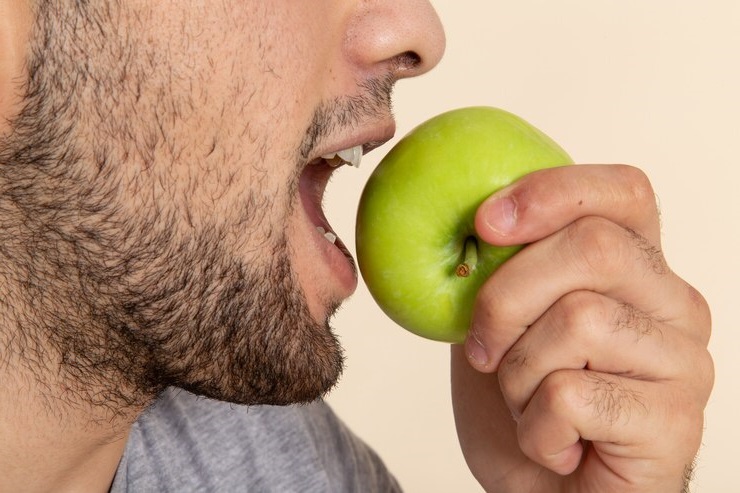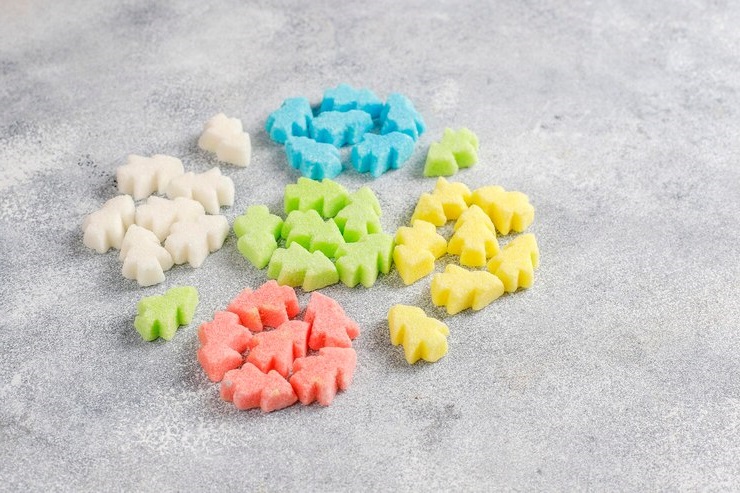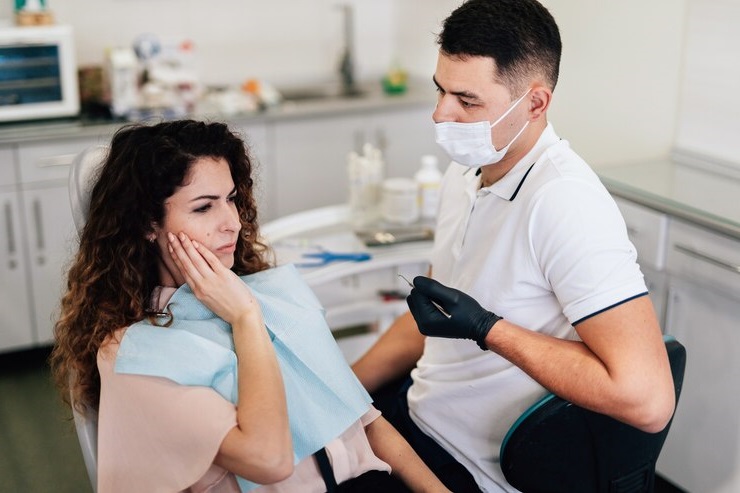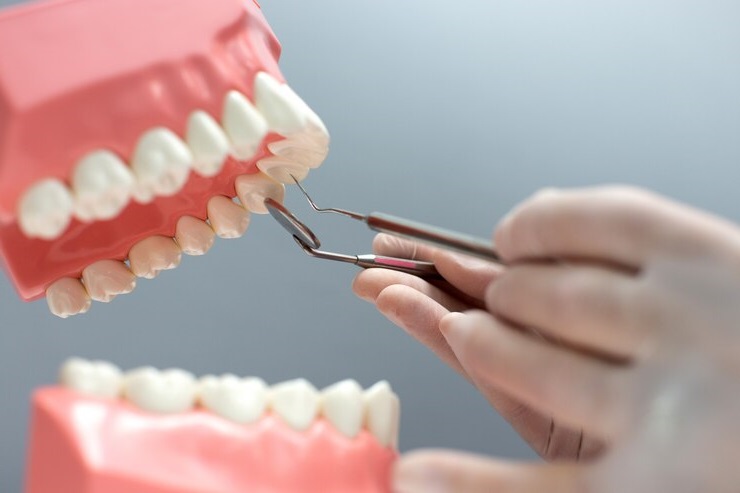
Tooth infections are not only painful but can also lead to severe complications if left untreated. While antibiotics are commonly prescribed to treat these infections, many people seek natural remedies to avoid potential side effects. One question that often arises is: What is the Strongest Natural Antibiotic for Tooth Infection?
Understanding Tooth Infections
A tooth infection, also known as a dental abscess, occurs when bacteria invade the tooth’s inner pulp, leading to a pocket of pus and inflammation. This can cause severe pain, swelling, and sensitivity. Knowing what is the Strongest Natural Antibiotic for Tooth Infection can help you manage these symptoms naturally.
Tooth infections are typically caused by untreated cavities, gum disease, or trauma to the tooth. Symptoms include a persistent toothache, sensitivity to hot and cold, swelling in the gums or face, fever, and a bad taste in the mouth. If left untreated, the infection can spread to other parts of the body, making it crucial to address it promptly.
Natural Antibiotics for Tooth Infections
Several natural antibiotics can help fight the bacteria causing tooth infections. These remedies can be effective alternatives to conventional antibiotics and are often gentler on the body.
Garlic
Garlic is one of the most potent natural antibiotics. It contains allicin, which has powerful antibacterial and anti-inflammatory properties.
- Crush a garlic clove to release its juice.
- Apply the crushed garlic directly to the infected area or chew on a garlic clove.
- Repeat this process a few times a day.
Garlic’s antibacterial properties can help kill the bacteria causing the infection, while its anti-inflammatory effects can reduce swelling and pain.
Oil of Oregano
Oil of oregano is another Strongest Natural Antibiotic for Tooth Infection. It contains carvacrol and thymol, compounds known for their antimicrobial activities.
- Mix a few drops of oil of oregano with a carrier oil (like coconut oil).
- Apply the mixture directly to the affected tooth and gums using a cotton ball.
- Repeat this process twice daily.
Oil of oregano can penetrate the biofilm that protects bacteria, making them more susceptible to being killed by the oil.
Turmeric
Turmeric is renowned for its anti-inflammatory and antibacterial properties, making it effective for treating tooth infections.
- Mix turmeric powder with water to form a paste.
- Apply the paste to the affected tooth and gums.
- Leave it on for about 20 minutes, then rinse with warm water.
- Repeat twice daily.
Curcumin, the active ingredient in turmeric, inhibits the growth of bacteria and reduces inflammation, helping to manage the infection and alleviate pain.
Home Remedies to Support Natural Antibiotics
In addition to using natural antibiotics, several home remedies can support the treatment of tooth infections. These remedies can help reduce pain and inflammation, providing relief while the natural antibiotics work.
Saltwater Rinse
A saltwater rinse can help disinfect the area and reduce inflammation.
- Mix 1/2 teaspoon of salt in a glass of warm water.
- Swish the solution around your mouth for about two minutes.
- Spit it out and repeat this process several times a day.
The saltwater rinse creates an inhospitable environment for bacteria, reducing their numbers and helping to draw out pus and relieve pressure.
Baking Soda
Baking soda has antibacterial properties that can help fight the infection and relieve pain.
- Mix 1/2 teaspoon of baking soda with a pinch of salt and water to make a paste.
- Apply the paste to the affected area using a cotton ball.
- Leave it on for a few minutes before rinsing with warm water.
Baking soda helps neutralize the acidic environment that bacteria thrive in, making it less likely for them to multiply and cause further infection.
Clove Oil
Clove oil is known for its pain-relieving and antibacterial properties. It contains eugenol, which can help reduce pain and fight infection.
- Dip a cotton ball in clove oil.
- Apply it directly to the affected tooth and surrounding gums.
- Repeat a few times a day.
Clove oil numbs the pain and helps kill the bacteria causing the abscess, promoting healing and providing relief from discomfort.
Professional Dental Treatments
While natural remedies can be effective, professional dental care is essential for treating a tooth infection properly. Dentists can provide treatments that directly target the infection and prevent further complications.
Root Canal Treatment
A root canal is one of the most effective treatments for a tooth infection. It involves removing the infected pulp, cleaning the inside of the tooth, and sealing it to prevent further infection.
During a root canal procedure, the dentist drills into the tooth to access the infected pulp. They then remove the infected material, disinfect the area, and fill it with a special material to prevent reinfection. This procedure can save the tooth and eliminate the abscess.
Tooth Extraction
In severe cases where the tooth cannot be saved, extraction may be necessary. This procedure removes the infected tooth to prevent the spread of the infection.
Tooth extraction is considered when the structure of the tooth is too damaged to be restored. Removing the tooth helps to eliminate the source of the infection and allows the surrounding tissues to heal.
Antibiotics
If the infection has spread or is particularly severe, a dentist may prescribe antibiotics to help eliminate the bacteria. These antibiotics can help reduce the infection and prevent it from spreading to other parts of the body.
Antibiotics work by targeting the bacteria causing the infection, killing them or stopping their growth. This helps to reduce the symptoms of the abscess and prevents complications that can arise from untreated infections.
Preventing Tooth Infections
Prevention is always better than cure. By adopting good oral hygiene practices and making healthy lifestyle choices, you can reduce the risk of tooth infections and avoid the need to find out what is the Strongest Natural Antibiotic for Tooth Infection.
Daily Oral Care
Maintaining a consistent oral care routine is essential for preventing tooth infections.
- Brush your teeth twice a day with fluoride toothpaste.
- Floss daily to remove plaque and food particles between teeth.
- Use an antiseptic mouthwash to kill bacteria and freshen your breath.
Regular brushing and flossing help to remove plaque and food particles that can lead to bacterial growth. Using mouthwash adds an extra layer of protection by killing bacteria that may be missed during brushing and flossing.
Healthy Eating Habits
Your diet plays a significant role in your oral health. Avoid sugary snacks and drinks, which can contribute to tooth decay. Instead, opt for foods rich in calcium, phosphorus, and vitamins A, C, and D to support healthy teeth and gums.
Foods that are high in sugar and acids can erode tooth enamel, making it easier for bacteria to cause infections. Eating a balanced diet helps to strengthen your teeth and gums, making them more resistant to infections.
Regular Dental Visits
Regular dental visits are crucial for long-term oral health. Schedule check-ups every six months to ensure your teeth and gums remain healthy. Dentists can identify and address potential issues before they become severe, reducing the risk of infections.
During dental check-ups, your dentist can perform professional cleanings to remove tartar and plaque buildup, check for signs of decay and infection, and provide personalized advice on maintaining optimal oral health.
Herbal Remedies for Tooth Infections
Herbal remedies can offer natural solutions for managing and treating tooth infections. These remedies can provide relief and help you understand what is the Strongest Natural Antibiotic for Tooth Infection without relying solely on conventional medicine.
Echinacea
Echinacea is known for its immune-boosting properties and can help fight infections.
- Take Echinacea supplements or use Echinacea tea as a mouth rinse.
- Consult with a healthcare professional before using Echinacea, especially if you have any underlying health conditions.
Echinacea can stimulate the immune system, helping your body to fight off the bacterial infection causing the abscess. It also has anti-inflammatory properties that can reduce swelling and pain.
Goldenseal
Goldenseal has strong antibacterial properties that can help treat tooth infections.
- Mix goldenseal powder with water to create a paste.
- Apply the paste directly to the affected area.
- Leave it on for about 20 minutes, then rinse with warm water.
Goldenseal contains berberine, an alkaloid with potent antibacterial and anti-inflammatory effects. This can help reduce the bacterial load in the mouth and promote healing.
Myrrh
Myrrh has been used for centuries for its antiseptic and anti-inflammatory properties.
- Mix myrrh powder with water to form a paste.
- Apply the paste to the affected tooth and gums.
- Leave it on for about 20 minutes, then rinse with warm water.
Myrrh helps to disinfect the mouth and reduce inflammation, making it an effective natural remedy for managing tooth infections.
Essential Oils for Tooth Infections
Essential oils can provide powerful antibacterial and anti-inflammatory benefits, making them useful for managing tooth infections and understanding what is the Strongest Natural Antibiotic for Tooth Infection naturally.
Tea Tree Oil
Tea tree oil has strong antibacterial properties that can help fight infections.
- Dilute a few drops of tea tree oil with a carrier oil (like coconut oil).
- Apply the mixture to the affected area using a cotton ball.
- Repeat this process twice daily.
Tea tree oil contains terpenes, which have been shown to kill bacteria and reduce inflammation. Applying it to the affected area can help manage the infection and alleviate pain.
Peppermint Oil
Peppermint oil can help reduce pain and inflammation associated with a tooth infection.
- Mix a few drops of peppermint oil with a carrier oil.
- Apply the mixture directly to the affected tooth and gums.
- Repeat this process twice daily.
Peppermint oil has a cooling effect that can numb the pain and reduce inflammation. Its antibacterial properties also help to reduce the bacterial load in the mouth.
Clove Oil
Clove oil is known for its pain-relieving and antibacterial properties. It contains eugenol, which can help reduce pain and fight infection.
- Dip a cotton ball in clove oil.
- Apply it directly to the affected tooth and surrounding gums.
- Repeat a few times a day.
Clove oil is particularly effective in managing tooth pain due to its numbing effect. It also helps to kill the bacteria causing the abscess, promoting healing.
Lifestyle Changes for Better Oral Health
Making positive lifestyle changes can help prevent tooth infections and support overall oral health. These changes can make it less likely that you’ll need to find out what is the Strongest Natural Antibiotic for Tooth Infection.
Quit Smoking
Smoking is a significant risk factor for gum disease and tooth infections. Quitting smoking can greatly improve your oral health and reduce the risk of infections.
Smoking weakens the immune system and reduces the flow of saliva, both of which can increase the risk of infections in the mouth. Quitting smoking helps to restore your body’s natural defenses and improve oral health.
Reduce Alcohol Consumption
Excessive alcohol consumption can negatively impact your oral health. Reducing your alcohol intake can help maintain a healthier mouth and reduce the risk of infections.
Alcohol can dry out the mouth and create an environment that promotes bacterial growth. Limiting alcohol consumption helps to maintain a balanced oral microbiome and prevent infections.
Stay Hydrated
Drinking plenty of water helps keep your mouth clean and supports saliva production, which naturally helps protect against tooth decay and infections.
Saliva plays a crucial role in maintaining oral health by washing away food particles and neutralizing acids produced by bacteria. Staying hydrated ensures that your mouth produces enough saliva to perform these functions effectively.
The Role of Stress in Oral Health
Stress can have a significant impact on your oral health, potentially leading to issues that require you to know what is the Strongest Natural Antibiotic for Tooth Infection. Managing stress effectively can help maintain better oral health.
Stress Management Techniques
Adopting stress management techniques can help reduce the impact of stress on your oral health. Consider practices like meditation, yoga, deep breathing exercises, and regular physical activity to manage stress effectively.
Adequate Sleep
Ensuring you get enough sleep each night is crucial for overall health, including your oral health. Aim for 7-9 hours of quality sleep each night to support your immune system and overall well-being.
Lack of sleep can weaken the immune system and make you more susceptible to infections, including those in the mouth. Getting enough rest helps to keep your body and immune system functioning optimally.
Conclusion
Knowing what is the Strongest Natural Antibiotic for Tooth Infection is crucial for managing dental pain and discomfort effectively. While professional dental care is always the best option, home remedies, OTC treatments, and lifestyle changes can provide temporary relief and support your oral health. Remember, it’s important to seek professional help if symptoms persist or worsen to prevent complications and ensure the best possible outcome for your dental health.





